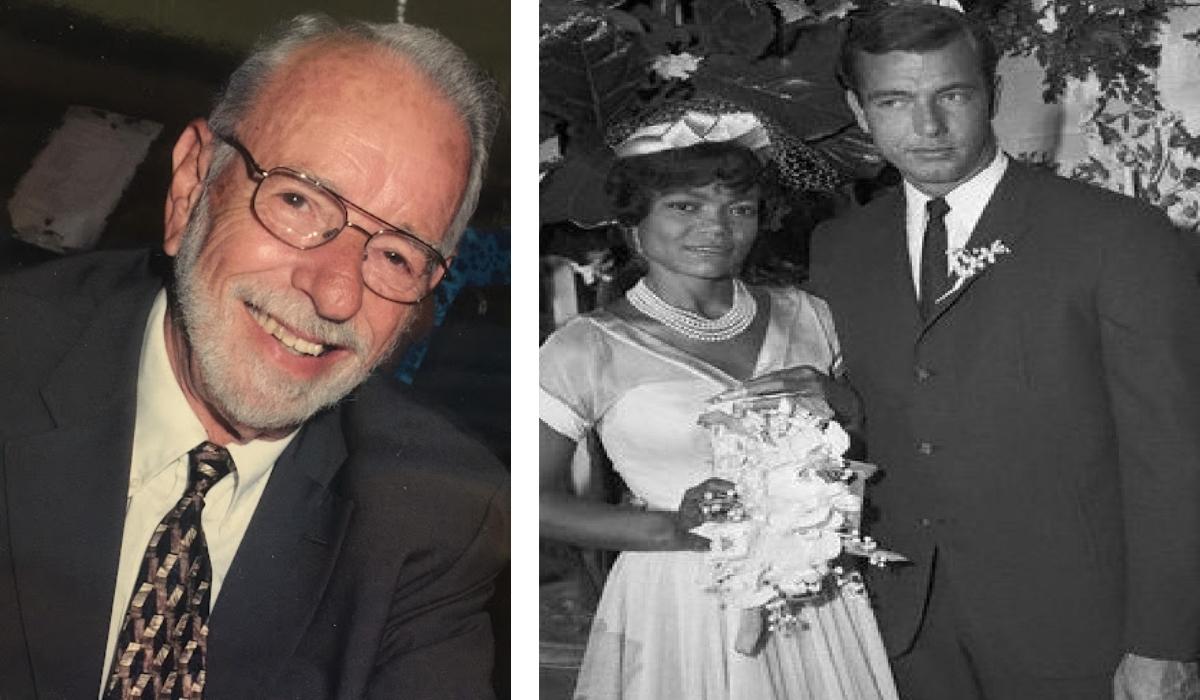The story of John William McDonald is one of quiet brilliance, enduring strength, and pioneering achievements. Though his name might not be as widely known as other historical figures, his legacy is profoundly impactful—particularly in the areas of education, civil rights, and Black Canadian history. McDonald was a scholar, community leader, and one of the first Black Canadians to break racial barriers in the world of higher education. His journey, marked by perseverance and an unshakeable commitment to equality, continues to inspire generations.
Quick Bio
| Personal Details | Information |
| Full Name | John William McDonald |
| Date of Birth | April 12, 1923 |
| Place of Birth | Los Angeles, California, USA |
| Ethnicity | Irish-German American |
| Education | Accounting, University of Southern California (USC) |
| Military Service | U.S. Army, Korean War Veteran |
| Injuries | Severely wounded by a grenade; 25+ surgeries |
| Career | Accountant, Real Estate Investor |
| Famous For | Ex-husband of Eartha Kitt |
| Marriage(s) | Married Eartha Kitt (1960–1964), remarried twice more |
| Children | Daughter: Kitt McDonald (Shapiro), Son: Chad |
| Date of Death | May 12, 2005 |
| Age at Death | 82 years |
| Place of Death | Los Angeles, California, USA |
| Net Worth | Unknown |
| Burial Place | Unknown |
The Early Years: Roots in Resilience
Born in 1904 in Nova Scotia, Canada—a province with deep historical ties to the African diaspora—John William McDonald grew up in a world where systemic racism was deeply embedded in everyday life. His family descended from Black Loyalists, formerly enslaved people who had fought for the British during the American Revolution and were promised freedom and land in Canada. But like many promises to Black Canadians in the 18th and 19th centuries, the reality fell far short.
Despite the hardships, McDonald’s family emphasized the importance of education and self-respect. This environment fostered a deep intellectual curiosity in young John. He excelled in school, demonstrating both academic aptitude and a strong sense of discipline—qualities that would eventually guide him through a series of remarkable achievements that made history.
Educational Milestones: Breaking Down Barriers
Perhaps the most remarkable aspect of John William McDonald’s life was his academic journey. At a time when Black Canadians were often denied access to many opportunities in higher education, McDonald became the first Black Canadian to earn a Ph.D. from a Canadian university. He earned this distinction from the University of Alberta, where he specialized in educational psychology.
This achievement alone places McDonald in the annals of Canadian academic history. But his journey to that milestone was anything but easy. He often faced institutional racism, was overlooked for academic opportunities, and had to work twice as hard to be taken seriously. Nevertheless, his pursuit of excellence never faltered. His work not only elevated him but also helped pave the way for other Black Canadians to pursue higher education without shame or limitation.
A Life in Academia and Advocacy
Upon earning his doctorate, John William McDonald didn’t stop at personal accolades. Instead, he committed his life to making education accessible and inclusive for all. He became a revered professor and eventually served in administrative roles at the University of Alberta, including as the university’s first Black vice-president. His work in academia was characterized by both intellectual rigor and a compassionate approach to student development.
But beyond his university responsibilities, McDonald also became a prominent voice in the larger conversation around civil rights and racial equity in Canada. He frequently wrote and spoke about the unique challenges facing Black students and was a strong advocate for systemic reform in Canadian education. He pushed for curriculum changes that included Black history and culture, long before such ideas gained mainstream acceptance.
The Black Canadian Experience: Context to His Legacy
To understand John William McDonald’s significance, one must consider the broader context of the Black Canadian experience. Unlike the American civil rights narrative, which is widely documented and discussed, Canada’s history with racism is often hidden under the myth of multicultural harmony. But McDonald lived the truth—he saw and experienced how exclusion, bias, and marginalization operated subtly within Canadian institutions.
For instance, many universities in the early 20th century had unwritten quotas limiting the admission of non-white students. Professional organizations often excluded Black members or made it nearly impossible for them to rise in rank. McDonald confronted these barriers not with resentment but with resilience. His calm yet unyielding approach helped dismantle these silent walls, one brick at a time.
Mentorship and Community Building
Throughout his career, John William McDonald prioritized mentorship as one of his core missions. He believed that representation alone wasn’t enough—empowerment required action. He mentored countless students, both Black and white, instilling in them the values of integrity, diligence, and social responsibility. Many of his mentees went on to become influential educators, community leaders, and policy advocates themselves.
What made his mentorship especially powerful was its personal nature. McDonald was known for making time for one-on-one conversations, offering practical advice, and helping students navigate the complexities of academic and professional life. His influence extended far beyond the classroom, reaching into communities and affecting real, measurable change in people’s lives.
Honors and Recognition: A Legacy Cemented
Although McDonald’s work was initially underappreciated during his early career, he eventually received the recognition he deserved. He was awarded numerous academic honors and civic commendations, including honorary degrees and lifetime achievement awards. In 1981, he was appointed to the Order of Canada, one of the country’s highest civilian honors. This acknowledgment not only celebrated his achievements but also validated the broader struggle for racial equity in Canadian society.
In later years, educational institutions began naming awards and scholarships after him, ensuring that his legacy would continue to support future generations. His story began to appear in textbooks, documentaries, and public lectures, slowly becoming a symbol of hope, perseverance, and progress.
Lasting Impact on Canadian Education
John William McDonald’s contributions to education were both theoretical and practical. He was deeply involved in educational research, publishing articles on student psychology, curriculum development, and teaching strategies. His academic work helped shape modern pedagogical approaches, particularly in understanding how cultural background impacts learning.
More importantly, he was a champion for inclusive education before it became a mainstream objective. He challenged the “one-size-fits-all” model and called for policies that acknowledged diverse learning styles, socioeconomic disparities, and racial bias. Today, many of the ideas he advocated for have become integral parts of educational training programs across Canada.
A Symbol of Quiet Strength
One of the most admirable aspects of John William McDonald’s character was his quiet strength. He wasn’t a firebrand revolutionary, nor did he seek the spotlight. Instead, he let his work speak for itself. He operated within the system but never let the system define him. He was thoughtful, deliberate, and deeply principled—an example of how change can be enacted not only through protest but also through presence, persistence, and professionalism.
His story is especially relevant today, as conversations around racial justice and equity continue to gain momentum. McDonald’s life reminds us that there are many ways to lead, and that impact is not always measured by visibility. Sometimes, the most transformative leaders are those who work quietly, consistently, and with unwavering purpose.
Why His Story Still Matters Today
In an era dominated by rapid news cycles and short attention spans, historical figures like John William McDonald offer a much-needed reminder of the power of endurance and vision. His life challenges us to reconsider how we define success and influence. It also urges us to question the systems we operate in and the hidden barriers that still exist for marginalized communities.
As more people seek to understand the roots of systemic inequality, stories like McDonald’s are invaluable. They provide historical context, offer practical blueprints for action, and inspire us to build a more inclusive future. For educators, students, policymakers, and citizens alike, McDonald’s journey serves as both a lesson and a legacy.
Conclusion: Carrying the Torch Forward
The life of John William McDonald is more than just a story of personal achievement—it is a chapter in the larger narrative of Black Canadian history and a roadmap for justice-driven progress. His dedication to education, equity, and empowerment continues to echo in classrooms, universities, and communities across Canada.
Remembering and honoring McDonald’s contributions is not just about paying tribute to the past—it’s about investing in a future where race, background, or socioeconomic status no longer limit potential. His legacy is a torch that we, as a society, must continue to carry forward, lighting the path toward understanding, compassion, and true equality.
Frequently Asked Questions (FAQs)
1. Who was John William McDonald?
- John William McDonald was a pioneering Black Canadian academic, educator, and civil rights advocate. He was the first Black Canadian to earn a Ph.D. from a Canadian university and later became a high-ranking university administrator.
2. What is John William McDonald known for?
- He is best known for breaking racial barriers in Canadian academia, advocating for inclusive education, and mentoring generations of students and educators.
3. Where did John William McDonald study?
- He earned his Ph.D. from the University of Alberta, becoming the first Black Canadian to achieve this distinction.
4. How did John William McDonald impact education in Canada?
- He influenced policy, curriculum, and access to education for marginalized communities. His research and advocacy helped shape modern Canadian educational practices.
5. Why is John William McDonald’s legacy important today?
- His story offers a powerful example of resilience, leadership, and lasting impact. It also serves as a historical anchor in ongoing conversations about race, equity, and education in Canada.









